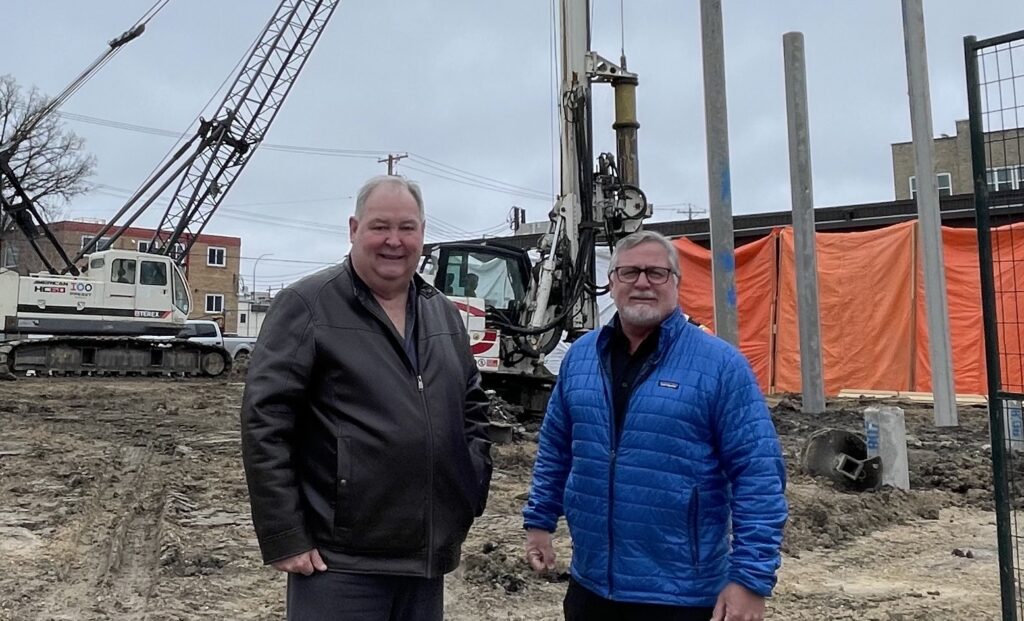Raymond Simard has been working in residential and commercial real estate and development for decades, but in recent years, he’s turned his attention to property development in the non-profit sector, a shift that has brought him a new level of satisfaction and pride in his work.
Simard has been involved with many projects for members of Réseau Compassion Network (RCN): the construction of a new, larger location for Centre Flavie; securing and renovating the Youth Huddle location on St. Mary’s Road; the construction of new residences for women religious in Manitoba and Québec; and most recently, supporting Marymound as they explore uses for their current buildings and the construction of an RCN-led residential project in St. Boniface called Les suites Marion. Health and social service agencies can’t do their work without appropriate spaces, and that’s where Ray, as he’s affectionately called by all, comes in.
Réseau Compassion Network (RCN): Is developing for non-profit organisations different than working in the private sector?
Raymond Simard (RS): Absolutely! It’s not about maximizing profits or the bottom line, it’s about making sure that the development works for the people you’re serving. Whether it’s Les suites Marion, or working with Centre Flavie, or any of the sisters, you have a different mindset going into construction. The questions aren’t about cost, it’s more, “If we add this feature, will it benefit our clients?” Sure, we want projects that are responsible and viable, but it’s mostly about making sure your final project serves your people.
RCN: What’s it been like, working with our network members?
RS: It’s been a blessing for me to work in the non-profit sector. I was in the private sector for a long time. It was about surviving and making the payroll. The people who work for Réseau Compassion Network and its members are there for the right reasons.

You have to remember that the leaders of these agencies have no development experience, so they’re totally counting on you. There’s no doubt that they know their core business inside and out. They know who they’re serving, and how to best serve them, but they need someone to look after construction. It comes down to them needing me to perform so that they can perform. And we’re working together to create something that works today, but that will also work 30 or 40 years down the line. You have to marry the needs of the community with the budgets and spaces available. It has to be well thought out and we do that work together.
RCN: While we know that development can be a stressful role, there must be highlights that make it all worthwhile. What are some of those for you?
RS: I always say I have the best job in the world. When the Benedictine sisters came to do a site visit of the new monastery being built for them in St. Boniface, they had these huge smiles on their faces and it just amazing. It’s the people that make this all worthwhile; they’re the highlight. They’re so trusting and compassionate, all they do is thank me for my help. It’s easy to do this work when people are so nice. It’s a honour to be able to take on some of the stress for them.

